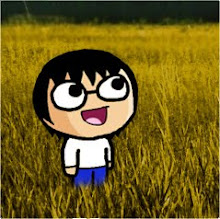This is a Sumerian poem in which Gilgamesh drops his drumstick and drums through a hole into the Nether World. Enkidu goes for it, but does not take the precautions Gilgamesh has given him, and he gets seized by the Cry of the Dead. Gilgamesh asks help from Ea, and opens a hole on the roof of the Nether World, from which Enkidu rose and told of how it is down there.

Unlike Tablet XI, in which death was represented as nothing more than just death (which was why Gilgamesh was afraid of death), this tablet emphasizes on the fact that there is an afterlife.
The fact that Enkidu didn't take the precautions given and went to the Nether World with luxurious objects might represent the same thing it did in the first tablets of the epic. He abandons the savagery, the wild, and chooses civilization, leading to his death. This can be compared with how the indigenous people (or leavers) are being destroyed: physically and culturally.
When Enidu came up from the Nether World, Gilgamsh tries to embrace and kiss Enkidu. This, again, shows that the author was gay. I' just kidding. It means that love was thought of differently back then than it is right now. It was more free.
Judging on how the Nether World was described, we can tell many things about the time this was written. They mentioned that the more sons you had before you died, you were more prosperous in the Nether World. This could mean that back then, having as many children was a good thing. Something like that. I can't find the right words right now.
It can also be seen that mourning for a dead person was considered very important, and that a proper burial was done to everyone, because of their belief that withoutit, they were to suffer after death.
It seems that this tablet, or even this whole epic, is a representation of humanity and death, and it's interpretation of the people back then.
Anyways, the Epic of Gilgamesh was fun to read, and gave me something to read and think about for some time. Therefore, I thank whoever wrote this. :)
 I think that depending on what perspective, as in, how you see the situation, it gets very different. If you were Arjuna and you were not willing to kill members of your family, you would be left even more confused after what Krishna were to tell him. As for Krishna, believes the completely opposite, and is desperate to convince Arjuna.
I think that depending on what perspective, as in, how you see the situation, it gets very different. If you were Arjuna and you were not willing to kill members of your family, you would be left even more confused after what Krishna were to tell him. As for Krishna, believes the completely opposite, and is desperate to convince Arjuna.








